Advocacy Organizations
New Faculty Majority
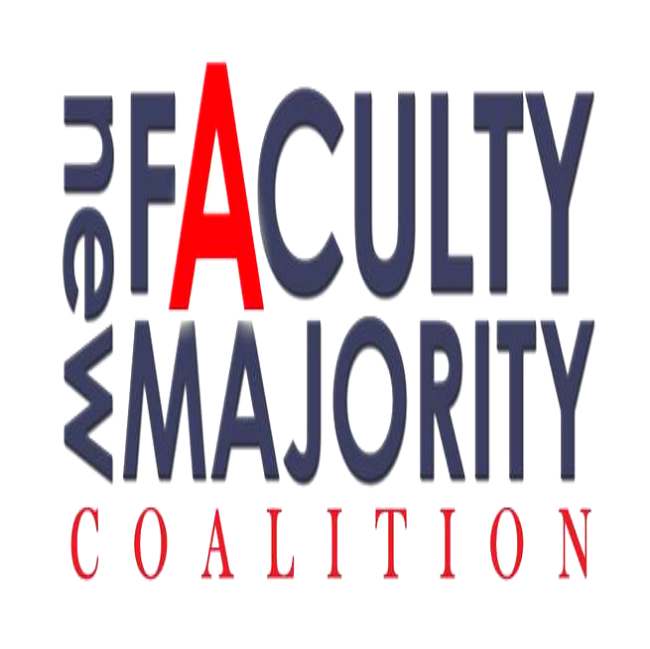
"NFM is dedicated to improving the quality of higher education by advancing professional equity and securing academic freedom for all adjunct and contingent faculty. For this purpose, NFM engages in education and advocacy to provide economic justice and academic equity for all college faculty. NFM is committed to creating stable, equitable, sustainable, non-exploitative academic environments that promote more effective teaching, learning, and research. NFM is part of the broader movement for human and worker rights."
AAUP
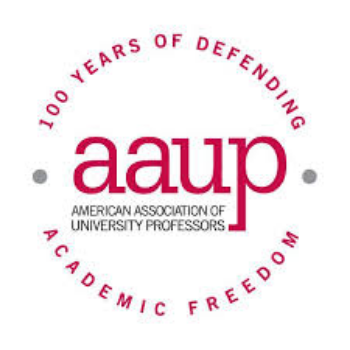
"The AAUP is a nonprofit membership association of faculty and other academic professionals. Headquartered in Washington, DC, we have members and chapters based at colleges and universities across the country.
Since our foundation in 1915, the AAUP has helped to shape American higher education by developing the standards and procedures that maintain quality in education and academic freedom in this country's colleges and universities. We define fundamental professional values and standards for higher education, advance the rights of academics, particularly as those rights pertain to academic freedom and shared governance, and promote the interests of higher education teaching and research."
Precaricorps
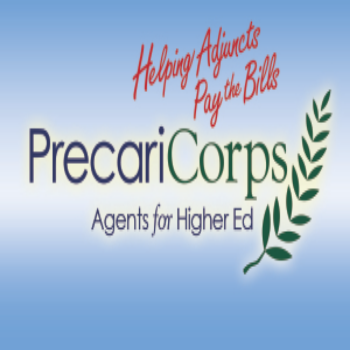
"PrecariCorps has four fundamental purposes:
- To improve the lives and livelihoods of contingent faculty undergoing financial hardship by providing charitable assistance to them in the form of cash assistance and/or grants;
- To create and distribute educational media to the public, including parents, students, and college communities, that details how colleges function in the post-recession U.S. economy;
- To create and design a searchable archive for contingent faculty issues in the news;
- To conduct research on contingent faculty and their role in the economy of U.S. colleges to encourage a broader public understanding of how colleges budget their financial resources as well as what effects these budgetary practices have on faculty populations, student populations, and the general value of higher education."
Coalition of Contingent Academic Labor (COCAL)
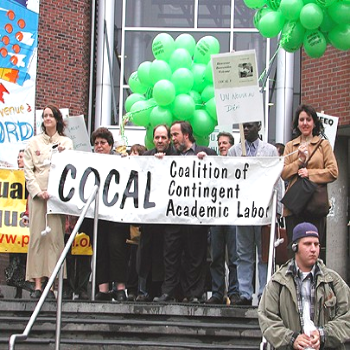
"The Coalition of Contingent Academic Labor is a network of North American activists working to improve higher education through the collective achievement of job reliability, livable wages, academic freedom, and time and resources for academic research and professional development for contingent academic laborers. COCAL is not affiliated with any single labor union and promotes grassroots contingent faculty organizing through events like Campus Equity Week.
To achieve its aims, COCAL dedicates itself to alerting the broader community about the trends that undermine the tenets of higher education by staging media events, improving legislation concerning higher education and so-called accountability efforts, and identifying colleagues at institutions and assisting them in forming collective bargaining units and negotiating strong contracts."
National Center for the Study of Collective Bargaining in Higher Education and the Professions (NCSCBHEP)
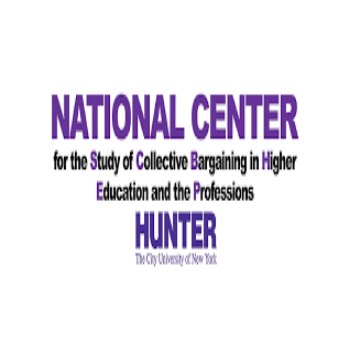
"The National Center for the Study of Collective Bargaining in Higher Education and the Professions (National Center) is housed in and supported by Hunter College, City University of New York and by its five hundred institutional and individual members.
Since 1972, the National Center has served as a national labor-management center dedicated to studying the use of collective bargaining as an important means for advancing higher education and the working conditions of faculty and staff in colleges and universities. We believe that the study of collective bargaining is essential for a knowledge-based dialogue concerning labor-management and educational issues, and is critically important for reasoned societal debate that will lead to social progress.
The National Center is comprised of labor and management professionals, practitioners, and scholars interested in studying contemporary and historical labor-management issues, best practices in collective bargaining, legal and legislative developments, and public support for higher education. It provides a clearinghouse and forum for scholarly research and ideas concerning labor relations, collective bargaining and labor law issues related to higher education."
Journal of Collective Bargaining in the Academy
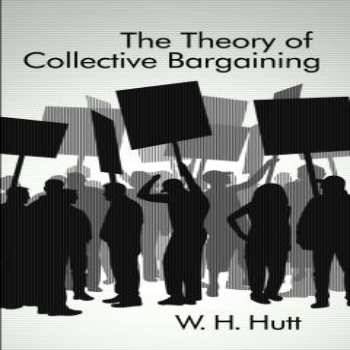
"JCBA is an open-access, peer-reviewed, online periodical the purpose of which is to advance research and scholarly thought related to academic collective bargaining and to make relevant and pragmatic peer-reviewed research readily accessible to practitioners and to scholars in the field. All content is available free of charge to individuals or their institutions, to read, download, copy, distribute, print, search, or link to the full text of the articles of this journal without asking prior permission from the publisher or author. Users are allowed to make derivatives. Users that wish to use the work for commercial purposes must request permission from the author of the work.
We welcome submissions from a wide community of practitioners including, but not limited to college and university professors, graduate students, administrators, union leaders, and others with an interest in collective bargaining in the academy. "